The Jordan College of Agricultural Sciences and Technology
| Picture | Caption(yes/no) | Caption Text |
|---|---|---|
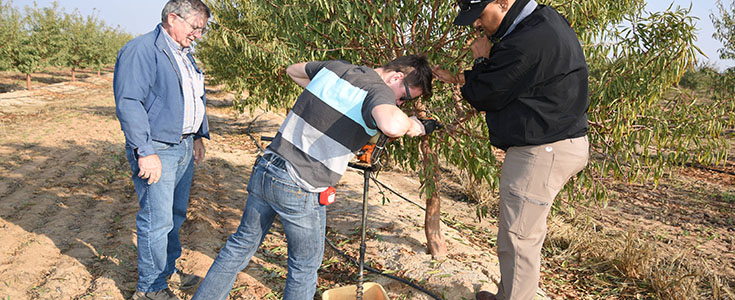 |
no | CaptionText |
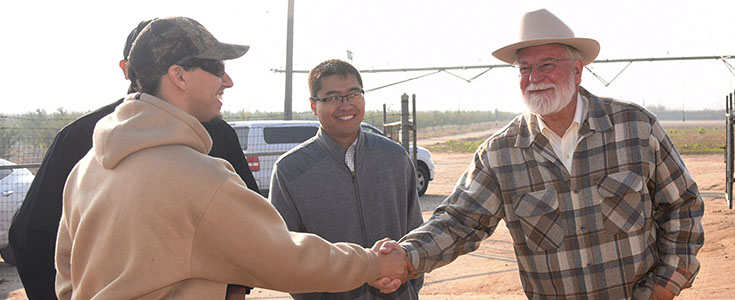 |
no | CaptionText |
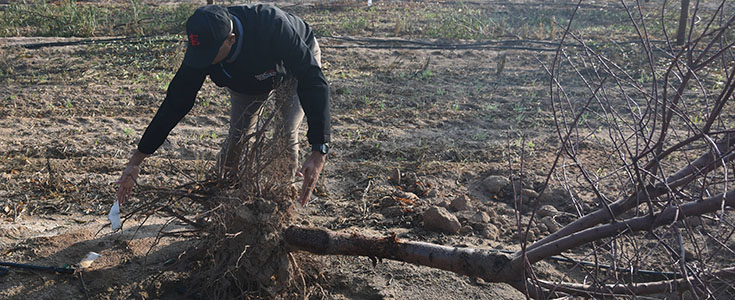 |
no | CaptionText |
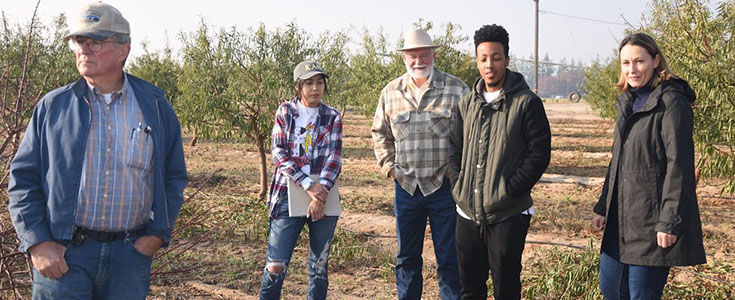 |
no | CaptionText |
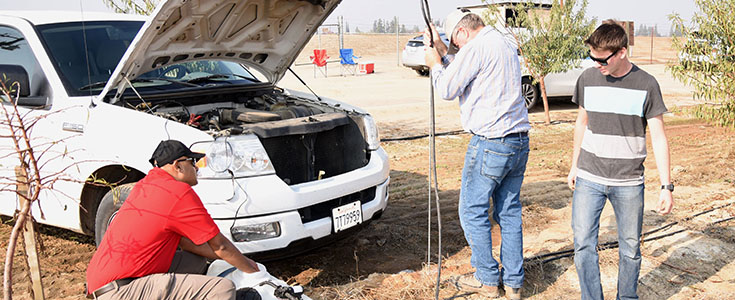 |
no | CaptionText |
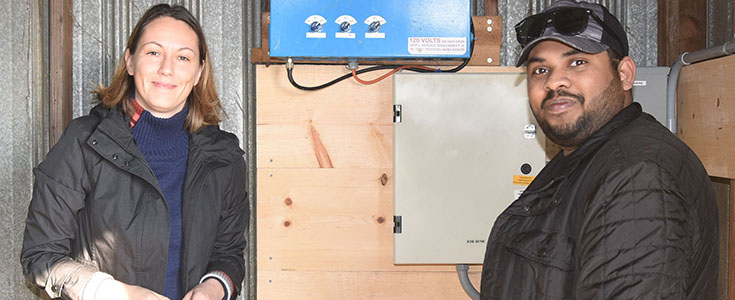 |
no | CaptionText |
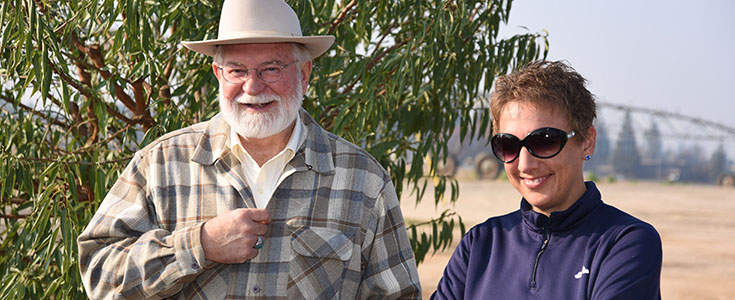 |
no | CaptionText |
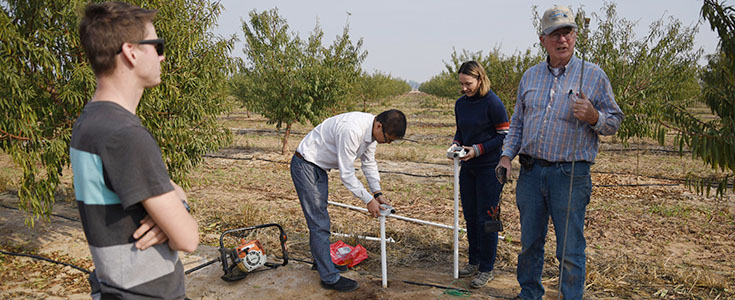 |
no |
Faculty & students partner on creating SmartFarm technology
Fresno State industrial technology faculty Dr. Balaji Sethuramasamyrajai is helping oversee a collaborative National Science Foundation CyberSEES funded SmartFarm research project between Fresno State, UC Santa Barbara and Cal Poly faculty and students to create a new automated precision agriculture cloud-based system for farmers.
Initially funded in 2015 by a NSF research grant, the technology is now being tested in a Fresno State campus farm almond orchard with data provided to farm staff to more efficiently manage irrigation and other agronomy decisions.
“This project brings together the strengths of sensor and data acquisition technology hardware, data analytics and cloud computing software and agronomy in an easy-to-use and accessible format," Sethuramasamyraja said. "Production agriculture growers can take advantage of a secure, affordable, open-source platform that will encourage more cost-efficient and sustainable farming practices."
The Fresno State faculty and student team is responsible for managing the agronomy decisions for the site’s planting, harvesting and input management (ie. fertilizer, water and pesticides) as well as integrating techniques for soil mapping and crop sampling. The database of site-specific information will also be utilized to cross-reference previous years’ data for moisture, soil pH, NPK and Soil EC to make more informed decisions. Fresno State plant science faculty emeritus Dr. Bruce Roberts has served as an agronomy consultant for the site with collaboration from industrial technology department industry advisory board member Dr. Jim Yager.
Cal Poly faculty Dr. Bo Liu and his team have developed custom data acquisition technology that automatically gathers moisture data, soil temperature and humidity. They are also working with the UCSB team to create automatic alert and notification systems to non-standard activities behavior such as water leaks, heat accumulation, pest migration and unit malfunctioning.
UC Santa Barbara faculty Dr. Chandra Krintz and Fresno State team jointly worked on the design, development and support of data transmission, storage and analysis via a cloud platform. UC Santa Barbara team focused on the data analytics part of the data processing in the cloud. Data will be accessible via desktop computer and phone applications to provide real-time information to farmers and can integrate with external sources for weather prediction, satellite imagery and other state and national datasets.
Fresno State industrial technology senior Senal Devasurendra played a key role in installing the on-site system in December 2017 with assistance from UC Santa Barbara doctoral candidate Nevena Golubovic. They connected and networked the in-ground field sensors to data acquisition smart boards, data receivers, a computer and router, antennae and mobile hot spot hardware that interface with data cloud storage and analysis software.
In the almond orchard test plot, two types of sensors were attached to each probe and planted at depths of 1, 2 and 3 feet and one foot apart and on both the sun-exposed and shaded side of the tree. Each probe transmits data at 10 minute intervals with the potential for the data analytic cloud server software to adjust and adjust the irrigation system using Internet of Things (IoT) connections.
"The SmartFarm system is exciting because it's adds new wrinkles on smart farm technology that can help us become more efficient and effective in our irrigation and agronomy techniques," said Rob Willmott, campus orchard manager. "This particular almond orchard plot has three different soil types that have different water tolerances and needs, so being able to collect data and manage allocation to avoid over- or under-irrigation is aligned with our efforts to improve our campus farm sustainability."
As they refine the system, the researchers hope to demonstrate and test the technology with other farmers around the state to eventually create a cost-effective Do-It-Yourself DIY kit that farmers can easily implement and tailor to their needs to gather data to operate more proactively and efficiently.
A by-product of the research will be the chance for students from the three universities to work together across disciplines and even participate in exchange programs in the design process.
"This research is important because it brings together a network of agriculture industry experts and uses modern technology to combine their experience and knowledge into one platform," Sethuramasamyraja said. "Growers and intermediate users like soil and crop consultants and pest control advisers can all tap into the advanced cloud computing technology used by the likes of Google and Amazon without the use of expensive proprietary hardware or software pushed to them. Equally important is the incredible experience for our students that are helping develop, test and refine this system. These are skills that they will use over and over in their careers and help farmers today."